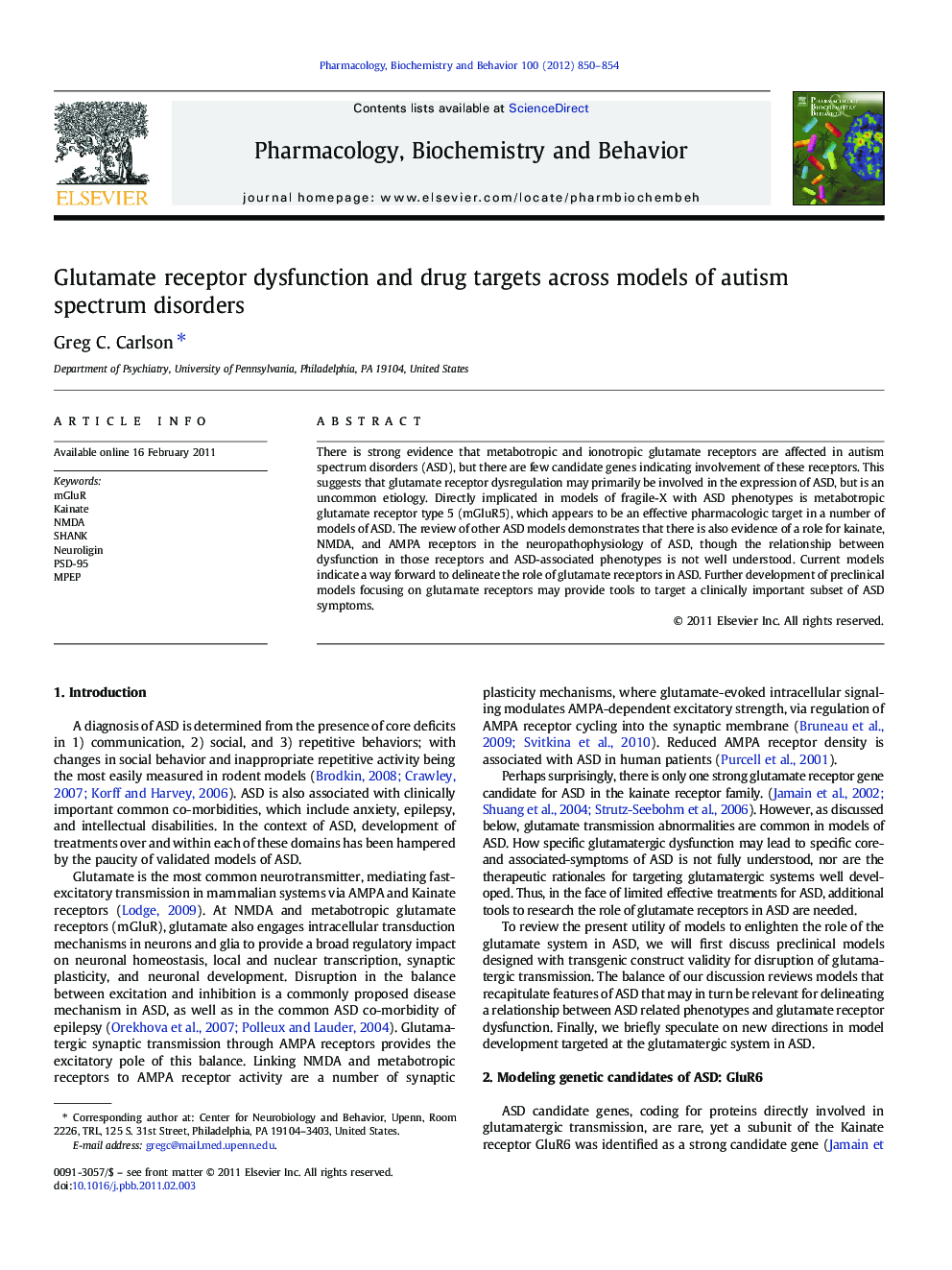| Article ID | Journal | Published Year | Pages | File Type |
|---|---|---|---|---|
| 2013116 | Pharmacology Biochemistry and Behavior | 2012 | 5 Pages |
There is strong evidence that metabotropic and ionotropic glutamate receptors are affected in autism spectrum disorders (ASD), but there are few candidate genes indicating involvement of these receptors. This suggests that glutamate receptor dysregulation may primarily be involved in the expression of ASD, but is an uncommon etiology. Directly implicated in models of fragile-X with ASD phenotypes is metabotropic glutamate receptor type 5 (mGluR5), which appears to be an effective pharmacologic target in a number of models of ASD. The review of other ASD models demonstrates that there is also evidence of a role for kainate, NMDA, and AMPA receptors in the neuropathophysiology of ASD, though the relationship between dysfunction in those receptors and ASD-associated phenotypes is not well understood. Current models indicate a way forward to delineate the role of glutamate receptors in ASD. Further development of preclinical models focusing on glutamate receptors may provide tools to target a clinically important subset of ASD symptoms.
Research Highlights►Autism and related models are associated with glutamate receptor dysfunction. ►Kainate receptor subunit GluR6, and is implicated in ASD. ►Disruption of synaptic ASD candidate genes disrupts glutamate receptor activity. ►Glutamate receptors appear to be strong drug targets for specific ASD symptoms.
